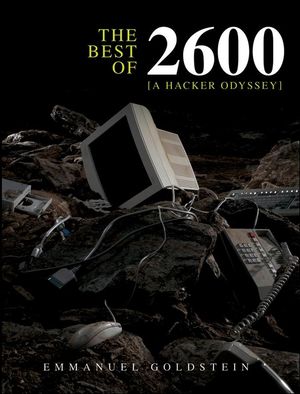Jane Margolis, Allan Fisher: Unlocking the Clubhouse: Women in Computing (2003)
Filed under book | Tags: · computer games, computing, gender, hacker culture, history of computing, history of technology, technology, women

“The information technology revolution is transforming almost every aspect of society, but girls and women are largely out of the loop. Although women surf the Web in equal numbers to men and make a majority of online purchases, few are involved in the design and creation of new technology. It is mostly men whose perspectives and priorities inform the development of computing innovations and who reap the lion’s share of the financial rewards. As only a small fraction of high school and college computer science students are female, the field is likely to remain a “male clubhouse,” absent major changes.
In Unlocking the Clubhouse, social scientist Jane Margolis and computer scientist and educator Allan Fisher examine the many influences contributing to the gender gap in computing. The book is based on interviews with more than 100 computer science students of both sexes from Carnegie Mellon University, a major center of computer science research, over a period of four years, as well as classroom observations and conversations with hundreds of college and high school faculty. The interviews capture the dynamic details of the female computing experience, from the family computer kept in a brother’s bedroom to women’s feelings of alienation in college computing classes. The authors investigate the familial, educational, and institutional origins of the computing gender gap. They also describe educational reforms that have made a dramatic difference at Carnegie Mellon—-where the percentage of women entering the School of Computer Science rose from 7% in 1995 to 42% in 2000—and at high schools around the country.”
Publisher MIT Press, 2003
ISBN 0262632691, 9780262632690
182 pages
PDF (updated on 2012-7-17)
Comment (0)Steven Levy: Crypto: How the Code Rebels Beat the Government. Saving Privacy in the Digital Age (2002)
Filed under book | Tags: · hacker culture, hacking, politics, privacy, security

Crypto is about privacy in the information age and about the nerds and visionaries who, nearly twenty years ago, predicted that the Internet’s greatest virtue–free access to information–was also its most perilous drawback: a possible end to privacy. Levy explores what turned out to be a decisive development in the crypto wars: the unlikely alliance between the computer geeks and big business as they fought the government’s stranglehold on the keys to information in a networked world. The players come alive here in a narrative that reads like the best of futuristic spy fiction. There is Whit Diffie, the long-haired Newton of crypto who invented the astounding “public key” solution; David Chaum, whose “anonymous digital money” actually threatened the global financial infrastructure; and “cypherpunks” like Phil Zimmermann, who freely distributed military-strength codes under the nose of the U. S. government. There is also the first behind-the-scenes account of what the secretive National Security Agency really had in mind when it created the controversial “clipper chip”–and how the Clinton administration bungled the operation. Sure to appeal to everyone who kept David Kahn’s sweeping The Codebreakers in print for more than thirty years and readers who are making Neal Stephenson’s Cryptonomicon, Mark’s Between Silk and Cyanide, and Singh’s The Code Book bestsellers, Crypto will soon be the new classic of its subject. Crypto is a bestselling book and winner in the category of best Non-Fiction eBooks for the International eBook Award Foundation 2001 eBook awards ceremony in Frankfurt, Germany.
Publisher Penguin, 2002
Series: Penguin Press Science Series
ISBN 0140244328, 9780140244328
Length 356 pages
Emmanuel Goldstein: The Best of 2600: A Hacker Odyssey (2008)
Filed under book | Tags: · computing, hacker culture, hacking, security, technology

Since 1984, the quarterly magazine 2600 has provided fascinating articles for readers who are curious about technology. Find the best of the magazine’s writing in Best of 2600: A Hacker Odyssey, a collection of the strongest, most interesting, and often most controversial articles covering 24 years of changes in technology, all from a hacker’s perspective. Included are stories about the creation of the infamous tone dialer “red box” that allowed hackers to make free phone calls from payphones, the founding of the Electronic Frontier Foundation, and the insecurity of modern locks.
Publisher John Wiley & Sons, 2008
ISBN: 978-0-470-29419-2
888 pages

